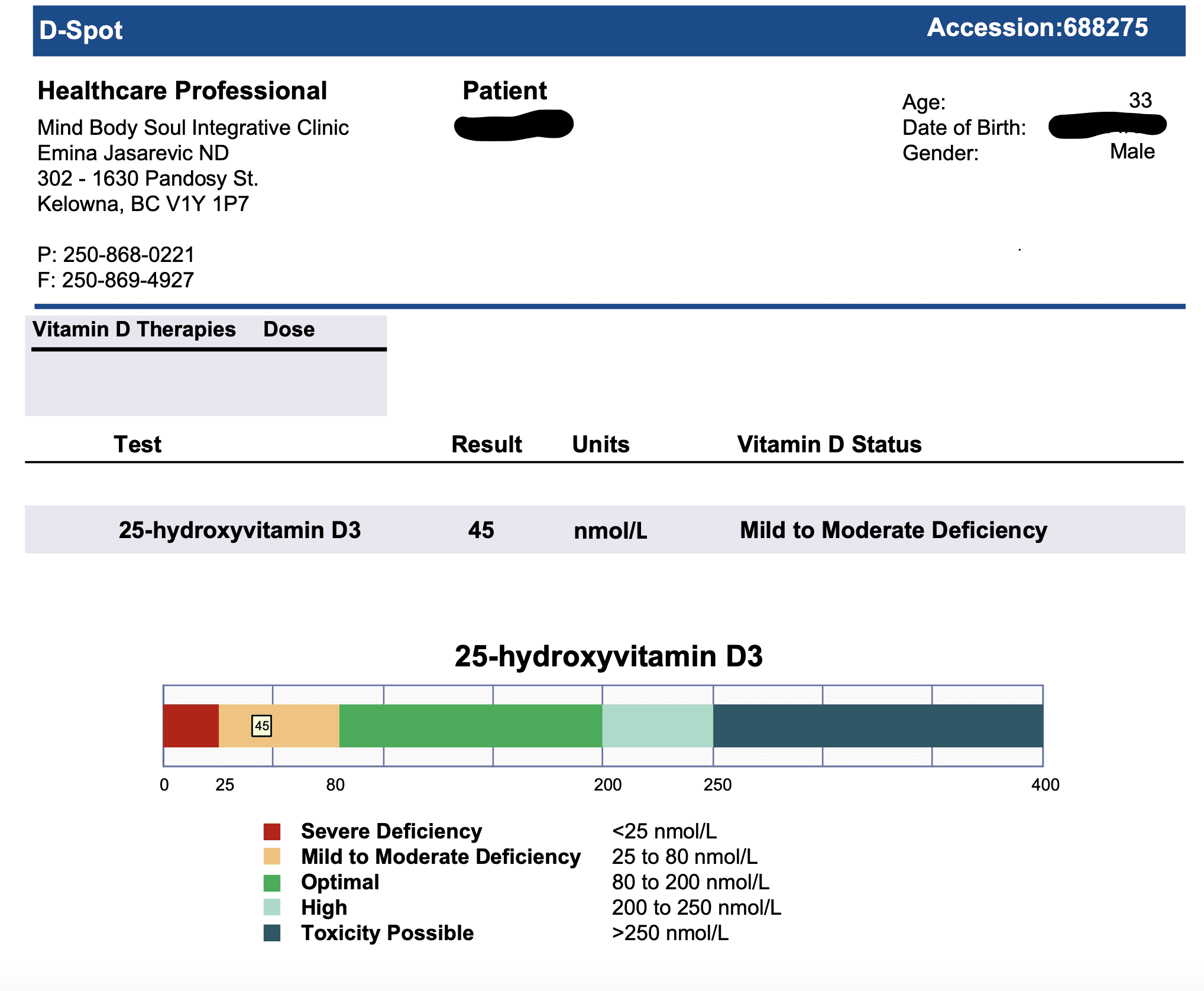Vitamin D is technically not a vitamin. Rather, it’s a hormone that synthesizes in the skin and converts to its active form in the liver. Vitamin D has amazing health benefits, from lowering cardiovascular risk to lower autoimmune disease rates and even reducing risk of some cancers. Many people who lack sun exposure on a regular basis do not synthesize adequate Vitamin D as it requires UVB light from the sun. A combination of living in the northern hemisphere and a modern indoor lifestyle lends itself to low levels of vitamin D on a population scale. An estimated 1 billion people are vitamin D deficient worldwide. This likely includes at least 40% of people in Canada and the United States, and various sources put that number significantly higher.
The recommendations for vitamin D levels of 600-1000 IU/Day are still too low and not up to speed with current research. Serum concentration of 25-hydroxy-vitamin-D (25(OH)D) is the best indicator of vitamin D status. It reflects total vitamin D input – from food, supplements, and sun exposure. Consider testing your vitamin D levels once for a baseline, and then one year later to assess how much your body requires to maintain good health and prevent disease. We all have different needs based on hormone transitions, stress levels, environmental exposures, genetic polymorphisms, etc. If you are curious about your Vitamin D levels, we offer in-house Vitamin D Testing as a simple finger prick to save you a trip to the local Laboratory.
Why Test for Vitamin D?
It has been estimated that 37,000 deaths could be prevented every year if the Canadian average vitamin D level was 105 nmol/L.1
7 out of 10 Canadians do not meet the suggested minimum vitamin D level for optimal health.2
- Mol Nutr Food Res. 2010;54:172-74
2. Statistics Canada, Health Reports. Vol. 21, no. 1, March 2010.
Low Vitamin D Levels have been linked to:
- Anxiety
- Autoimmune disease (Lupus)
- Cancers
- Depression
- Diabetes – Type I and Type II
- Heart disease
- High blood pressure
- Multiple sclerosis
- Muscle pain and fatigue
- Osteoporosis
- Poor immune response
- Thyroid Dysfunction
Sample Report


